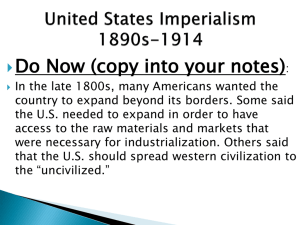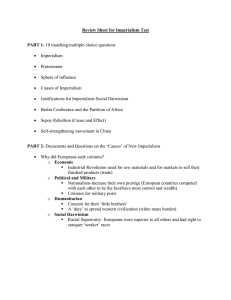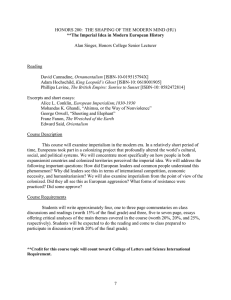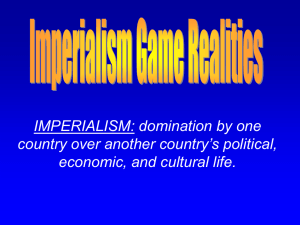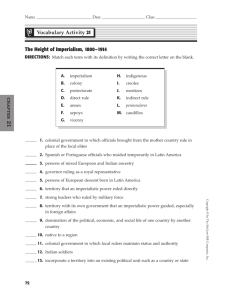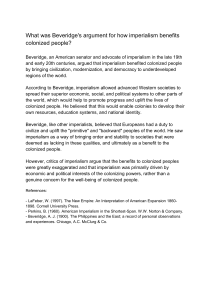New Imperialism
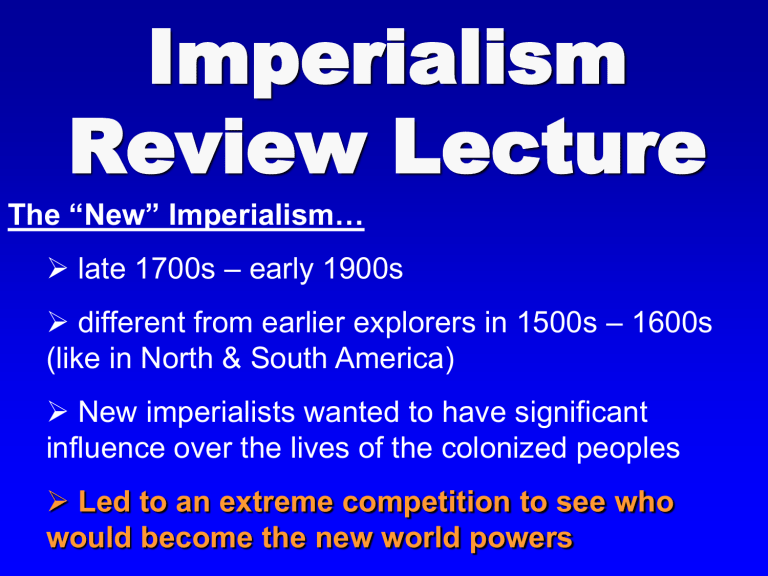
Imperialism
Review Lecture
The “New” Imperialism…
late 1700s – early 1900s
different from earlier explorers in 1500s – 1600s
(like in North & South America)
New imperialists wanted to have significant influence over the lives of the colonized peoples
Led to an extreme competition to see who would become the new world powers
Imperialism
Definition
Domination by one country over another country’s political, economic, and cultural life.
Industrial Revolution and Imperialism
Industrialized countries needed raw materials such as cotton, coal, iron, oil, copper, rubber
They also needed foreign markets to sell goods
Needed to control a region/country to protect raw materials & markets
American Imperialism
(Late 1800s – early 1900s)
Controversial because of American ideals
U.S. was slow to imperialize (many locations had already been colonized)
Eventually we needed to actively protect
& promote our economic & political interests
Policy pursued by President’s McKinley,
Roosevelt, Taft, and Wilson.
Motives for Imperialism
Economic
Desire to make money
To expand and control foreign trade
Create new markets for products
Acquire raw materials and cheap labor
Global Competition
Nation’s desire to gain power & security
Expand territory and compete with other nations
Gain prestige by winning colonies
Prove military strength
Ideological
Based on the belief in superior races
Need to “ civilize ” other people (“ White
Man’s Burden ”)
Social Darwinism: only the strongest nations will survive
Responsibility to spread Christianity & our culture to inferior peoples
Forms of Colonial Rule
Coloniesterritory owned & ruled by a foreign power
Protectorate – a country that keeps its own government, but under the protection of another nation
Sphere of Influence – a territory in which an outside power claims exclusive trading privileges

